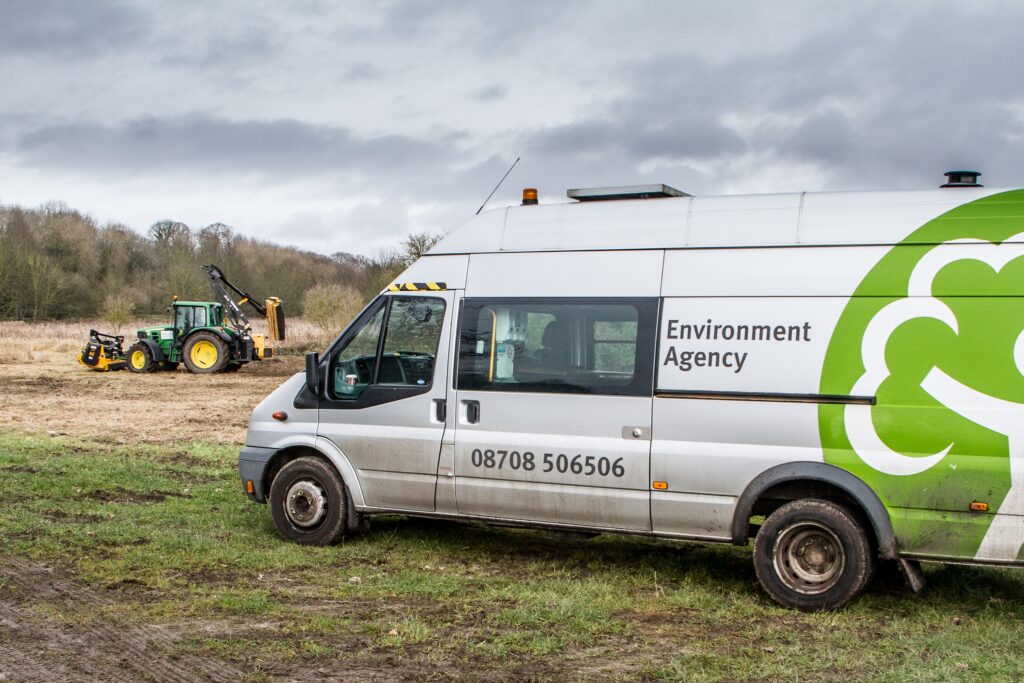Instead of working to return to a world we once knew, the Environment Agency is today setting out how it plans to lead the way toward a greener, healthier future.
Its new 5 year plan, EA2025, calls for a new approach which promotes health, equity and environmental enhancement and says that the Coronavirus pandemic presents an opportunity to reshape a better future. It can help society better understand the largest public health threat of the century: the climate emergency.
By 2025 the Environment Agency aims to have created more climate resilient places and infrastructure, by ensuring the nation is prepared for flooding, coastal change and drought.
The plan also highlights a renewed focus on improving the health of air, land and water for people and nature – and ensuring green growth for a sustainable future.
Sir James Bevan, chief executive of the Environment Agency, said: “Tackling the climate emergency must become a default position for everyone. We know that life post-lockdown presents a unique opportunity to change the way we live and work for the better.
“We have been gifted a glimpse of how we could adapt our lives and think differently about how we operate. This applies not just to us but the communities we serve, too. People are ready to think differently, and with our new 5 year plan we want to make the most of this once-in-a-lifetime chance to lead the way.”
Emma Howard Boyd, chair of the Environment Agency, said: “The Prime Minister has announced that the country needs to build back better, build back greener, build back faster. This action plan sets out how we will help to accelerate a just transition to a low-carbon and more resilient future. Although the plan points at 2025 it starts now, and the lessons we learn along the way will help develop the whole UK workforce for the risks and opportunities of the coming decades.”
Since lockdown began, the Environment Agency has remained fully operational, with the majority of staff working from home, and frontline staff remaining active on the ground tackling issues such as flood risk and pollution.
Staff have been making the best use of technology to continue work – such as remotely concluding legal hearings and using drones to monitor regulated sites, and looking at how we can adopt these practices in the future to be more efficient and effective. Teams have been maintaining equipment that supports public water supply, food production and river flows.
The hot weather led to several fish rescues in the North West, while fisheries enforcement teams were out in force clamping down on illegal fishing. At the start of this month, the second phase of a multi-million pound scheme to reduce flood risk to more than 800 homes and businesses across Radcliffe and Redvales got underway.
The £40 million scheme, forms part of the Environment Agency’s programme of £2.6 billion investment into flood defences across the country. Working in partnership with Bury Council, the scheme, which will be delivered in three parts, will not only reduce the risk of flooding to hundreds of local homes but incorporates natural methods alongside ‘hard’ defences to further combat the threat of flooding posed by climate change.
EA2025 follows on from years of bold ambition by the Environment Agency across the North West to take climate change and make local communities more resilient. From working alongside Tata Chemicals in Winnington to pioneer new emission controls, to the Manchester Green Summit, which showed that by creating cleaner, greener air in Greater Manchester, 1,000 life years of the local population have already been saved.
2019 saw the Environment Agency and other partners launch the IGNITION project; a 3 year first-of-its-kind project that sets a target of a 10% increase in green infrastructure in Greater Manchester by 2038, and could provide a model for investors that would help “green finance” for urban infrastructure go mainstream around the world. Last year, the first stage of a £20K restoration project, along one of Bolton’s industrial watercourses was also completed and additional regulation was implemented along the River Tame corridor to ensure companies who deal with plastics, such as plastic recycling or waste transfer stations, do not have the pathways for either macro or micro plastics to escape into the environment.
Lee Rawlinson, Area Director for Greater Manchester, Merseyside and Cheshire said: “EA2025 will allow us to take control of our own future and leave our environment in a better state than we found it for the generations to come. Its goals are simple: cleaner air and water; plants and animals which are thriving; and a cleaner, greener country for us all. Over the years, we have already taken huge strides to improve our environment across the North West. This plan sets out the further action we will take to ensure our natural environment is protected and enhanced.”
EA2025 sets out three long-term goals: a nation resilient to climate change; healthy air, land and water; and green growth and a sustainable future. Some of its ambitious targets for 2020/21 include improving more than 4,000 kilometres of river, creating nearly 1,200 hectares of habitat and being on track to be carbon-neutral by 2030.

Voice note from Lee Rawlinson, Environment Agency Area Director for Greater Manchester, Merseyside and Cheshire.
Original article and images by the Environment Agency.
For a link to EA2025, click here.